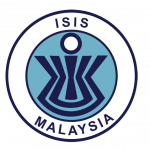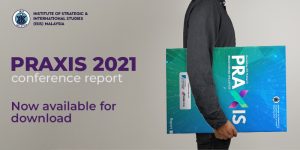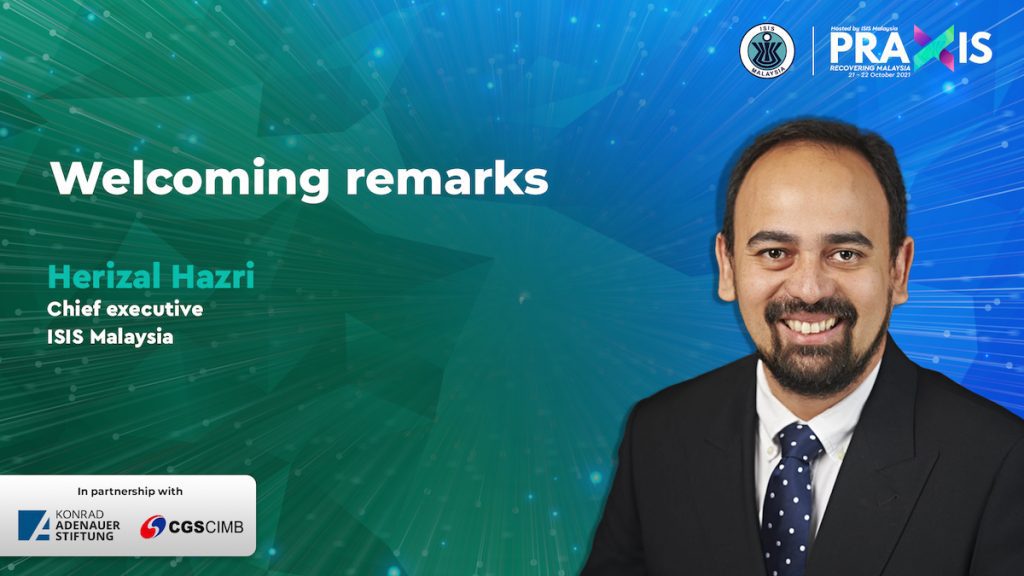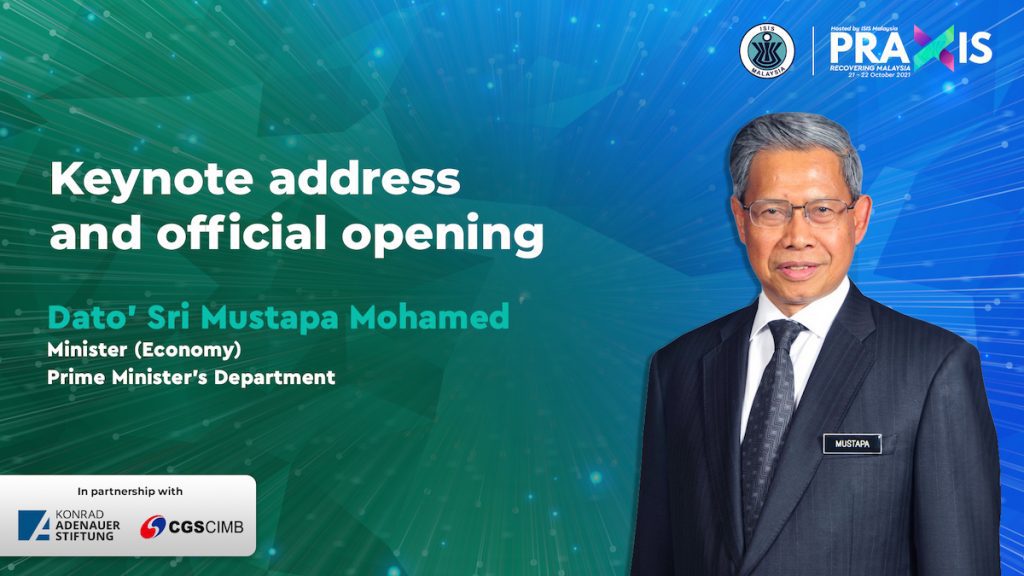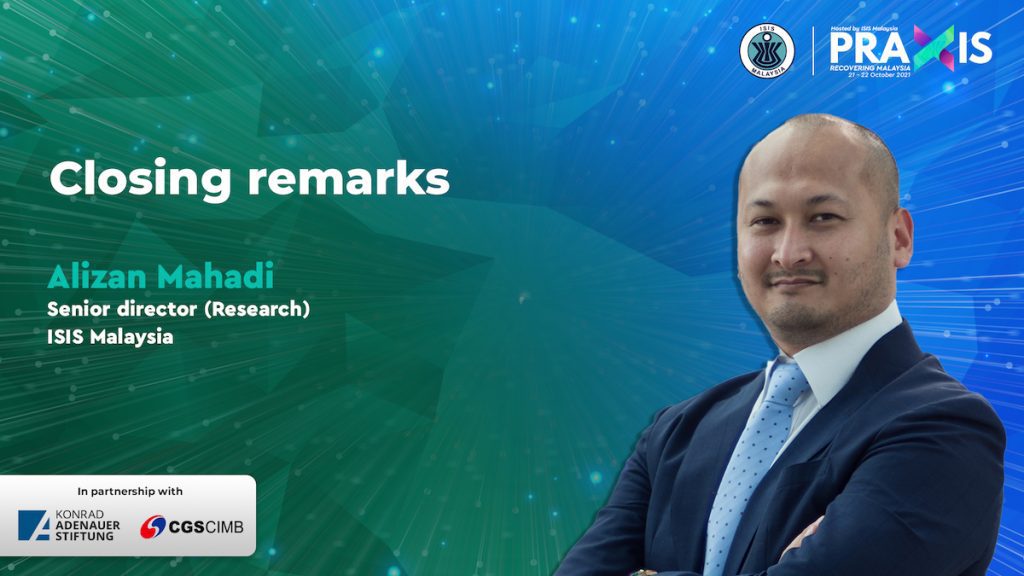Despite Malaysia entering its second year battling the Covid-19 pandemic, we are still reeling from its effects. As we progress towards recovering our economy and achieving herd immunity, the longer-term consequences of the pandemic are increasingly apparent. The task of mitigating the long-term fallout will be a colossal national undertaking, requiring novel ideas and brave leaders.
Make your voice heard as speakers and thinkers discuss the ramifications of a post-Covid-19 world and plant the seeds of public policy.
ABOUT
First launched in 2011 as an economics and business seminar, PRAXIS 2021 has expanded to encompass environmental and economic sustainability, socio-politics and societal development, and technology.
It has a strong following among policymakers, civil society and academics, as a platform to engage in robust discussions on a wide range of policy issues that impact the nation.
Despite Malaysia entering its second year battling the Covid-19 pandemic, we are still reeling from its effects. As we progress towards recovering our economy and achieving herd immunity, the longer-term consequences of the pandemic are increasingly apparent.
The task of mending these wounds and mitigating the long-term fallout will be a colossal national undertaking, requiring novel ideas and brave leaders.
PRAXIS 2021 aims to be a platform to debate and discuss the best ways forward for Malaysia.
Make your voice heard as speakers and thinkers discuss the ramifications of a post-Covid-19 world and plant the seeds of public policy.
Report
Programme
Media centre
Contact us
Ms Atikah Ishak / Mr Louis Denis:
events@isis.org.my
Please contact Atikah Ishak (atikah@isis.org.my) and Louis Denis (louis.denis@isis.org.my) for information on sponsoring PRAXIS 2021
Programme day 1 (21 October 2021)
2022 in focus: Economic and geopolitical risks of a post-Covid world
The arrival of 2022 will mark two years since the Covid-19 pandemic first hit the world. Yet the global economic and geopolitical landscape remains uncertain, turbulent and precarious. In fact, recovery has been widely unequal. Many countries are still contending with the scars inflicted by the pandemic while geopolitical tensions across the world are mounting, exacerbated by the social unrest resulting from Covid-19. This session aims to outline the short- and long-term economic and geopolitical risks surrounding the global and regional economy – and explore what the world will look like in 2022. How will this affect Malaysia and the region? How can businesses, analysts and policymakers adjust to the emerging risks of a post-Covid world?
Moderator
Speakers

Alizan Mahadi
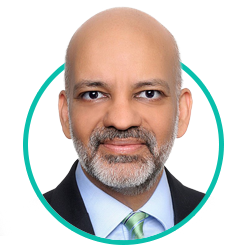
Dr Apurva Sanghi
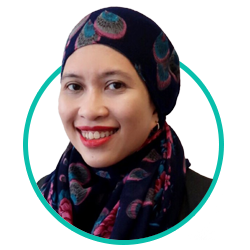
Intan Nadia Jalil
Future pandemics: Preparing for the new normal and the future
Malaysia kicked off its National Covid-19 Immunisation Programme (NCIP) at the tail end of February to much fanfare. It promises light at the end of the tunnel as the country has lost many lives and livelihoods. While the country is poised to establish herd immunity by year-end, experts warn of two things— that Covid-19 could become endemic, meaning that booster shots and other longer-term coping mechanisms might be required and more distressingly, the next pandemic could be more severe. With Covid-19 laying bare pain points in the country’s healthcare system, what can we do to build resilience to manage future pandemics? This session seeks to take stock of the experience in dealing with Covid-19, identifying what could have been done better, and what more can be done to prepare Malaysia for the next pandemic.
Moderator
Speakers

Dr Helmy Haja Mydin

Dr Subatra Jayaraj
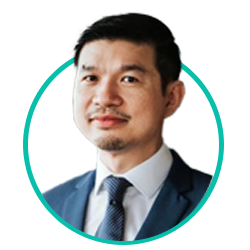
Dr Khor Swee Kheng
Programme day 2 (22 October 2021)
Youth rising: The future for young Malaysians
Malaysia’s youth are on increasingly shaky ground. Economically, the pandemic has disproportionately hurt young workers and jobseekers while socially, the closure of schools and social activities has taken a toll on their mental health and education. The pandemic also highlights the longstanding inequities that young Malaysians have had to contend with — among them, low wages and the suppression of youth voices in politics and policy. Even so, young Malaysians are becoming more and more engaged in politics and policy, with the rise of youth activism poised to become an enduring feature of the pandemic. This session aims to provide a platform for young Malaysians and investigate structural impediments and explore policy avenues for the youth.
Moderator
Speakers

Saraya Mia

Qyira Yusri

Datuk Nicole Wong

Tengku Nur Qistina
Going digital: Transforming microenterprises in Malaysia and the region
The pandemic led to the rapid growth of the digital economy and digital trade in Malaysia and the region from early 2020, with successive lockdowns being implemented to curb the spread of the virus. Malaysia’s digital economy alone is estimated to be at about RM270 billion, or about 18.5% of GDP in 2018 — with the share expected to grow to about 20% at the end of 2020. Given that MSMEs in the country and the Asean region make up around more than 90% of businesses, how can MSMEs reap the benefits of a growing digital economy? What are the challenges for MSMEs in Asean, RCEP and Apec trying to adopt digital tools and automation apart from financing issues, post-pandemic? What are the types of policies needed to ensure that MSMEs can participate and compete in the digital economy?
Moderator
Speakers

Calvin Cheng

Smita Kuriakose

Aiza Azreen Ahmad

Dr Lurong Chen
Progress for all: Localising sustainable development across Malaysia
Even as Malaysia moves towards the end of the second year battling the pandemic, the realities and experiences of the marginalised and lower-income communities across the country are often underappreciated. This session seeks to bridge the gap between economic progress at the macro level and the everyday realities of the pandemic on the ground. This session will spotlight the ongoing efforts of the bipartisan All-Party Parliamentary Group Malaysia for Sustainable Development Goals (APPGM-SDG) to localise sustainable development, identify local issues and implement solution projects. How have communities fared amid the onset of the pandemic — and how have they recovered? What are the progress and outcomes of the various solution projects implemented by APPGM-SDG in different parts of the country? What role can local solutions play in mending the wounds from the crisis and ensuring that future economic progress is more equitable?
Moderator
Speakers

Tehmina Kaoosji
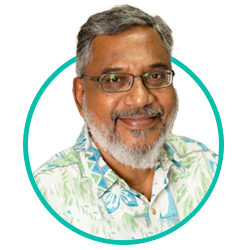
Prof Datuk Dr Denison Jayasooria

Maria Chin Abdullah
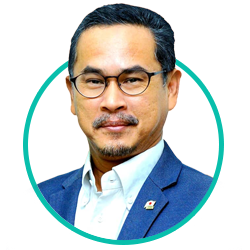
Assoc Prof Dr Zainal Abidin Sanusi
PARTNERS

ORGANISER
